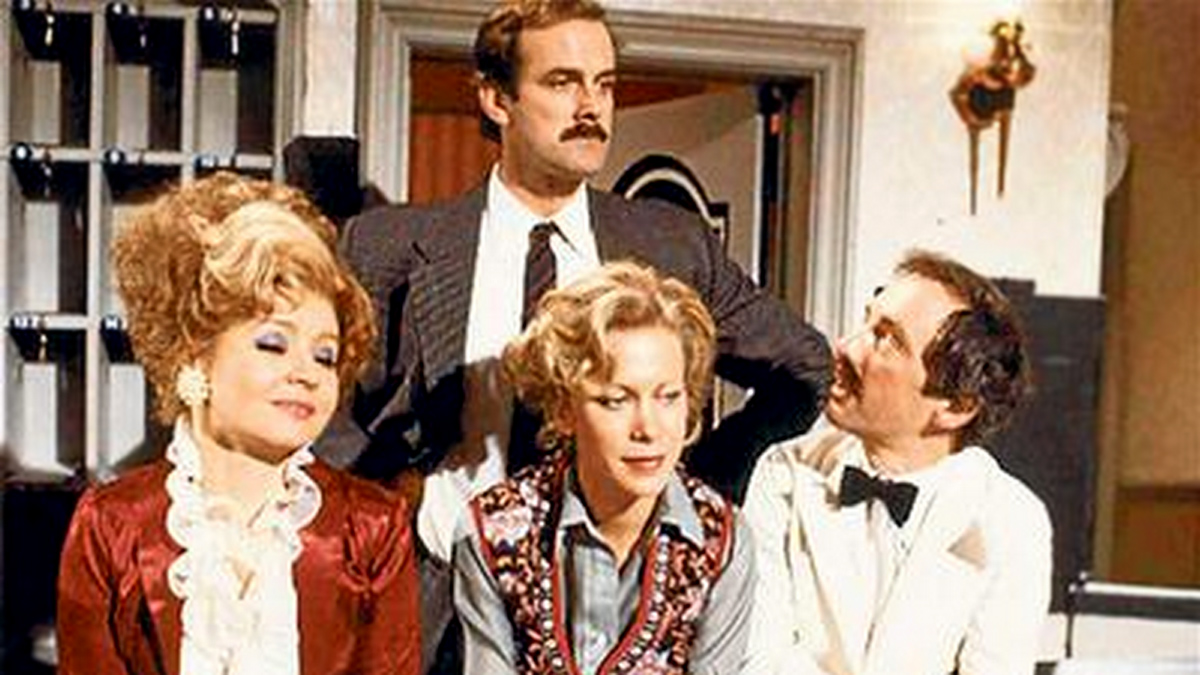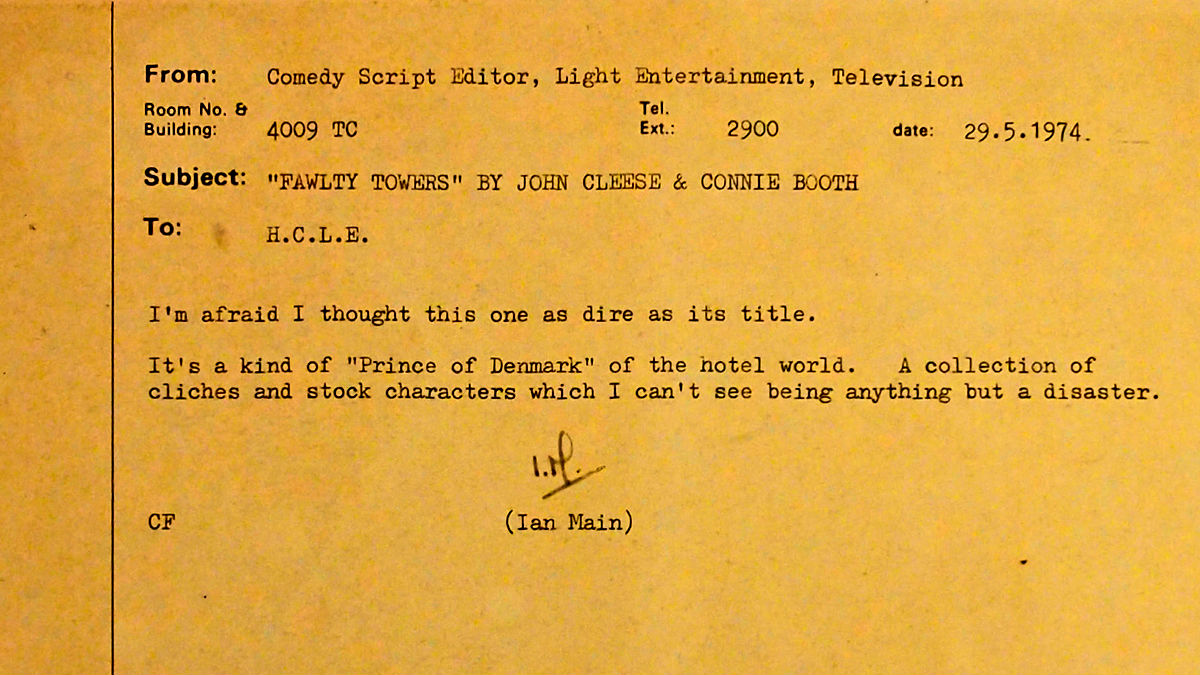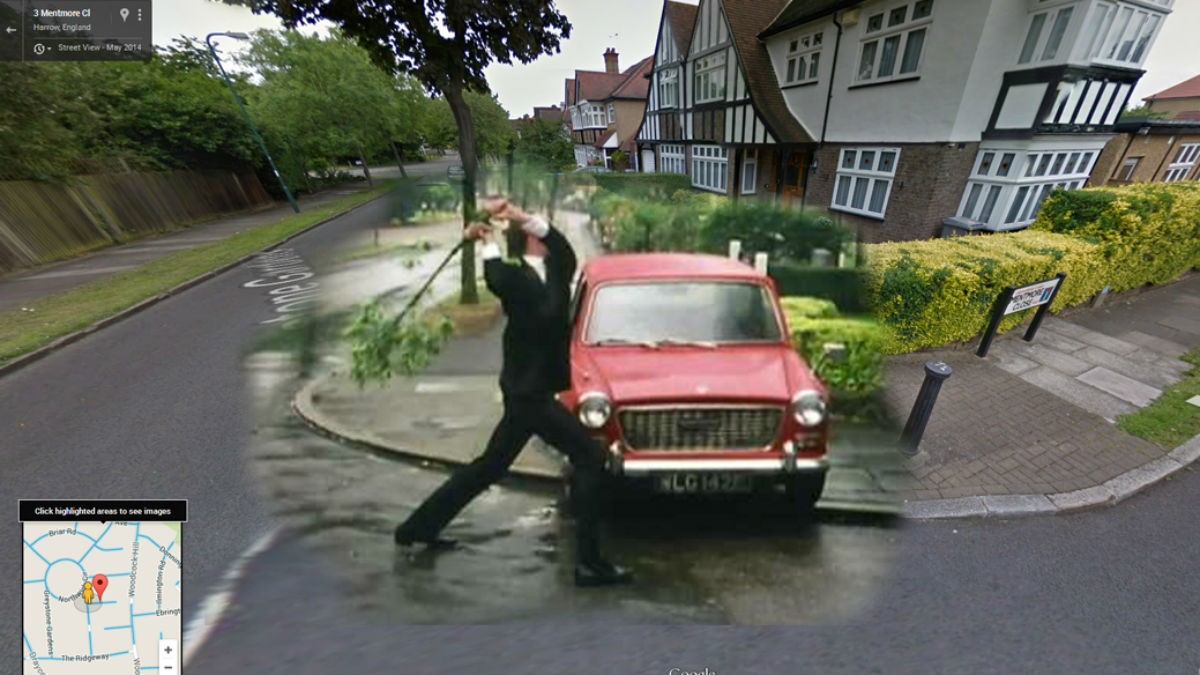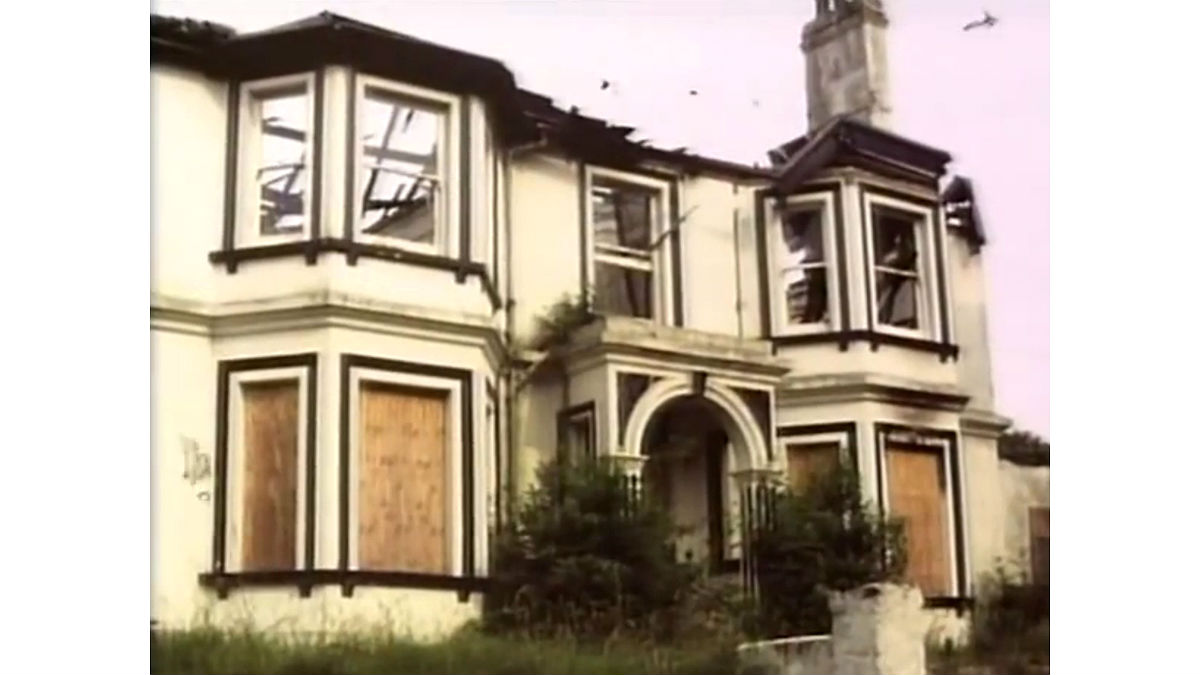Fawlty Towers at 40: seven surprising facts about the perfect sitcom
Dismissed by a BBC script editor as nothing but a disaster, Fawlty Towers almost didn't get made

A free daily email with the biggest news stories of the day – and the best features from TheWeek.com
You are now subscribed
Your newsletter sign-up was successful
Fawlty Towers, one of the best-loved sitcoms ever made, was first broadcast 40 years ago this month. Thanks to its availability online, the show about a calamitous hotel continues to gather new fans.
Despite the affection in which it is now held, many of the ingredients that gained Fawlty Towers a place in TV history were originally pooh-poohed by the BBC, which thought them old-fashioned.
In fact, the BBC nearly rejected the show.
The Week
Escape your echo chamber. Get the facts behind the news, plus analysis from multiple perspectives.

Sign up for The Week's Free Newsletters
From our morning news briefing to a weekly Good News Newsletter, get the best of The Week delivered directly to your inbox.
From our morning news briefing to a weekly Good News Newsletter, get the best of The Week delivered directly to your inbox.
Manic Basil Fawlty, Sybil his domineering wife, Manuel the Spanish waiter, Polly the astute maid and the other larger-than-life characters and events were considered clichéd.
John Cleese remembers producers sarcastically whispering about the pilot script in the BBC bar. In a memo which Geoffrey Perkins, a subsequent BBC Head of Comedy, had framed on his office wall, a script editor said: "I'm afraid I thought this one as dire as its title… a collection of clichés and stock characters which I can't see being anything but a disaster."
Thankfully, the BBC did not take his advice, and a pilot, starring a 35-year-old Cleese as Basil Fawlty, was filmed in December 1974. It was first broadcast on BBC2 at 9pm on Friday 19 September 1975.
A free daily email with the biggest news stories of the day – and the best features from TheWeek.com

The memo that could have killed off Fawlty Towers, from the BBC archive
The role of Connie Booth
At the time, Cleese was best known for his surreal antics with Monty Python's Flying Circus. He had approached the BBC primarily with the wish to create a project on which he could work with his wife, the actor and writer Connie Booth, often overlooked despite being at the core of the show. As well as playing Polly, the hotel's resourceful maid, Booth co-wrote the scripts.
Fawlty Towers was based on a real hotel
Cleese and Booth were inspired by the manager of a real Torquay hotel, Gleneagles, where they had stayed while filming Monty Python. They found the manager, Donald Sinclair, to be larger-than-life and incredibly – and entertainingly – rude. Cleese had already based a character on Sinclair for an episode of the sitcom Doctor At Large in 1971 – but the idea had continued to brew.
Gleneagles gets a mention in Fawlty Towers, in an episode called The Builders, when Basil's guests have to go there for dinner while the dining room is out of action.
The show was not filmed in Devon
Although set in Torquay, most of the location filming actually took place in Harrow and Wembley, with restaurants and hospitals doubling for Devon. A suburban London street filled in as the location where Basil manically thwacks his car with a branch.

An image from Google Maps, showing Mentmore Close in Harrow, where Basil attacked his car. The road name appears on screen in the programme
The building used for the hotel exterior was actually a golf club in Buckinghamshire, Wooburn Grange Country Club (pictured below). It burnt down in 1991 and was demolished soon after.

Fawlty Towers was not an immediate success
The Daily Mirror review of the first episode was headlined "Long John Short on Jokes".Unusually, the episode got a supportive repeat on BBC2 less than three months after first broadcast. It was shown again on BBC1 seven months later. As a result the audience grew - and with it, expectations.John Cleese has said that because of the long gap between the first and second series – four years, long enough for Cleese and Booth to get divorced – by the time it returned people were already remembering the show being "better than it was".
Is there really a 'missing episode'?
There were just 12 episodes of the show – two series of six – but a lost 13th episode has long been rumoured. A Swedish author, Lars Holger Holm, claimed in 2004 that he had seen the episode and even reproduced the script in his book Fawlty Towers: A Worshipper's Companion.
What Holger Holm had watched is anyone's guess, as there are no other studio recordings of the show detailed in the BBC's extensive archives. Footage of the episode remains conspicuous by its absence.
It's thought that a numbering error at the studio used for recording the second series occurred when the Wedding Anniversary episode was put on hold for a week because of industrial action – and this is where rumours of the phantom episode arose.
The scripts took weeks to write
Cleese and Booth spent two-and-a-half weeks working out each plot before they wrote a single line of dialogue, generally spending the time most sitcom writers used for a whole series on a single episode. The scripts were also twice as long on paper as a typical sitcom's because they were filled with description of the action.
The show's creators made a conscious decision to perform the scripts at speed for people watching at home rather than the studio audience. Cleese says there were twice as many camera edits than in a normal studio sitcom of the era.
The show has been remade – badly
Remakes have occurred several times around the world, but none has ever recaptured the magic. Four attempts have been made in the US alone: Steve Carrell made an early appearance in one as the Manuel character and in another version - Amanda's, starring Bea Arthur - they even went as far as writing Basil out.
Cleese once outlined a plan for a Fawlty Towers film but said he had no intention of making it because he'd be "up against an expectation that absolutely cannot be matched." The idea was Basil and Sybil heading to Barcelona to meet Manuel's family and foiling a terrorist plane hijack along the way.
-
 Political cartoons for February 19
Political cartoons for February 19Cartoons Thursday’s political cartoons include a suspicious package, a piece of the cake, and more
-
 The Gallivant: style and charm steps from Camber Sands
The Gallivant: style and charm steps from Camber SandsThe Week Recommends Nestled behind the dunes, this luxury hotel is a great place to hunker down and get cosy
-
 The President’s Cake: ‘sweet tragedy’ about a little girl on a baking mission in Iraq
The President’s Cake: ‘sweet tragedy’ about a little girl on a baking mission in IraqThe Week Recommends Charming debut from Hasan Hadi is filled with ‘vivid characters’